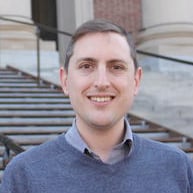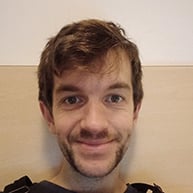Testimonials
Dr David Thorstad
Postdoctoral Research Fellow, Global Priorities Institute
Junior Research Fellow, Kellogg College

I am now in the second year of my postdoctoral fellowship. I have had a formal career-development conversation with my supervisor every year since the middle of my graduate studies. These conversations have been an extremely valuable way for me to update my supervisors on my progress, plan my future career, and enlist the support of my supervisors in achieving my career goals.
As a result of my first career-development conversation in graduate school, my advisor agreed to co-organize (and fund!) an academic conference in my area of expertise, and helped me to see the importance of building an active pipeline of research papers in addition to my dissertation.
Since then, career development conversations have led me to be nominated for teaching awards; helped to clarify standards for promotion and what I will need to do to meet them; given me new opportunities to lead initiatives of interest to me within my institute; allowed me to carve out time that can be spent in the upcoming year on personal development and pet research projects; and helped me to discuss how my institute can support me while I am on the market for a permanent job.
Without exception, I have found career development conversations to figure out together with my supervisors what would be most helpful for my career, and how we can work together to move my career forward.
Dr Benjamin Foster
Postdoctoral Research Associate, Department of Biochemistry

In the department, we have had Professional/Personal Development Reviews (PDRs) that encompass individual development in their current role, but is also an ideal opportunity for the researcher to think about their career aspirations, and to discuss these with their PI. This is intentionally separate from any project or work-related meetings and I have been lucky that my PI has positively engaged with this process, booking the meeting in good time during “PDR season”. At the same time, I have actively taken this opportunity and the time out of the hectic work day to think about my career aspirations, and to try and identify the skills, training, and experiences I would need to reach those goals.
Aiding this has been a PDR document with guided questions relating to my professional development, and to encourage me to independently look for skills and training courses within the university or elsewhere that would be beneficial. Having a physical document really helped focus the process and while the document could be improved to concentrate more on career development, it really helped to critically assess my own development both on a personal and professional level. This document helped in the career conversation with my PI too, providing prompts to help structure the time.
The main take home for me was to be honest and open during this conversation and to actively engage with the process, instead of going through the motions. Growing a sense of trust and honesty with your PI is key from day one and these conversations really helped in this regard so both parties know what they want and how to achieve them, with advice and suggestions from my PI providing more avenues and networks to explore. Whilst not the intention of the PDR process, this trust-building really helped with professional relationships and communication in the group too.